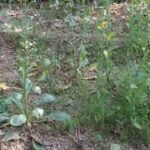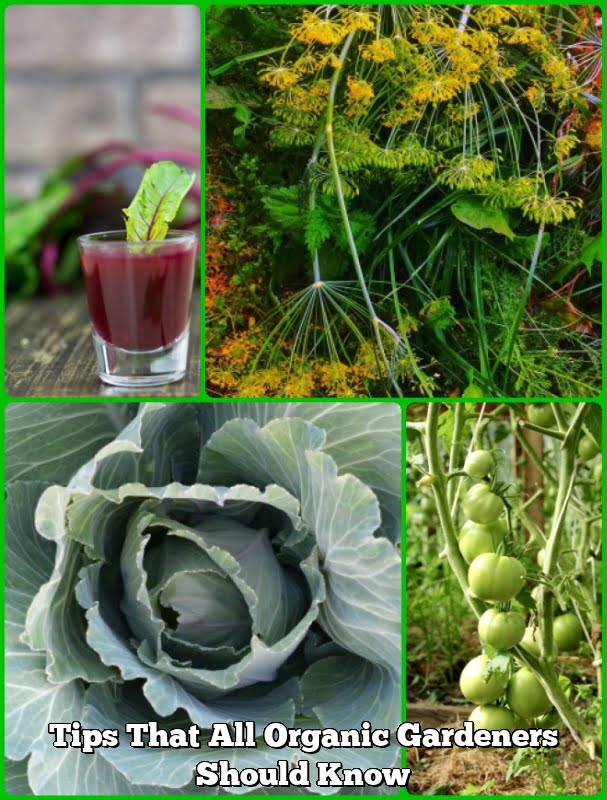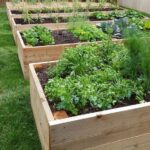Are you interested in starting a vegetable garden in Rhode Island? Whether you’re a seasoned gardener or a beginner, the Ocean State offers a unique climate and growing conditions for cultivating a wide variety of vegetables. This article will provide you with valuable information on the best vegetables to grow, tips for starting your garden, managing pests and diseases, community resources and support, extending the growing season, and the environmental and community benefits of vegetable gardening in Rhode Island.
Rhode Island’s climate presents both opportunities and challenges for vegetable gardeners, but with the right knowledge and tools, you can produce a bountiful harvest. From hearty root vegetables to delicate greens, there are countless options to explore regardless of your gardening experience. With the support of local resources and the guidance of experienced gardeners, your vegetable garden can thrive in Rhode Island’s unique environment.
In this article, we will cover everything you need to know about succeeding as a vegetable gardener in Rhode Island.
We’ll discuss which vegetables are best suited for RI’s climate, offer essential tips for getting started, explore ways to combat common pests and diseases, highlight community resources available to you as a gardener in RI, provide insight on extending your growing season, and share the overall benefits of contributing to Rhode Island’s vibrant gardening community through vegetable cultivation.
Whether you’re looking to have a small garden at home or participate in community gardening projects.
this article will equip you with everything needed for success as a vegetable gardener in the Ocean State.
The Best Vegetables to Grow in RI’s Climate
Rhode Island’s climate offers a unique opportunity for vegetable gardeners to grow a variety of crops. The state’s temperate climate with warm summers and cool winters is suitable for many different vegetables. When considering what to plant in your Rhode Island vegetable garden, it’s important to take into account the state’s USDA hardiness zones, which range from 5b to 7a.
Some of the best vegetables to grow in Rhode Island include leafy greens like lettuce, spinach, and kale, as well as cool-weather crops such as broccoli, cauliflower, and Brussels sprouts. Root vegetables like carrots, beets, and radishes also thrive in Rhode Island’s climate. Additionally, summer favorites like tomatoes, peppers, and cucumbers do well during the warmer months.
It’s important for vegetable gardeners in RI to choose varieties that are well-suited to the local climate and growing conditions. Some recommended varieties for Rhode Island gardeners include ‘Provider’ green beans, ‘Early Girl’ tomatoes, ‘Boston’ lettuce, and ‘Sugar Snap’ peas. By selecting the right varieties for your region, you can maximize your chances of a successful harvest.
| Vegetable | Recommended Varieties |
|---|---|
| Lettuce | Boston Lettuce |
| Tomatoes | Early Girl |
| Cucumbers | Straight Eight Cucumbers |
| Peppers | Bell Pepper – California Wonder |
Tips for Starting Your Vegetable Garden in RI
Starting a vegetable garden in Rhode Island can be an exciting and rewarding endeavor for vegetable gardeners RI. Whether you are a seasoned gardener or just starting out, there are several tips to keep in mind when beginning your vegetable garden.
Choosing the Right Location
One of the most important factors for a successful vegetable garden is selecting the right location. Choose a spot that receives at least six hours of sunlight per day and has well-drained soil. Consider the proximity to water sources and accessibility for watering and maintenance.
Soil Preparation
Before planting, it’s essential to prepare the soil properly. Test the soil pH and nutrient levels, and amend it as needed with organic matter such as compost or aged manure. Good soil health is crucial for healthy plant growth and bountiful harvests.
Selection of Vegetables
When starting your vegetable garden, consider which vegetables thrive in Rhode Island’s climate. Some great options include tomatoes, peppers, carrots, lettuce, kale, and beans. Be sure to choose varieties that are well-suited to the region’s growing conditions for optimal yield.
By following these tips when starting your vegetable garden in Rhode Island, you can set yourself up for success as a vegetable gardener RI. With proper planning and care, you can enjoy a productive and fulfilling gardening experience throughout the growing season.
Common Pests and Diseases for Vegetable Gardeners in RI
One of the biggest challenges for vegetable gardeners in Rhode Island is dealing with common pests and diseases that can affect their crops. From pesky insects to harmful fungi, it’s important for gardeners to be aware of these potential threats and how to manage them effectively.
In Rhode Island, some of the most common pests that vegetable gardeners may encounter include aphids, cabbage worms, flea beetles, and squash bugs. These tiny invaders can wreak havoc on a garden if left unchecked, so it’s essential to regularly inspect plants for signs of infestation and take appropriate measures to control their populations. Additionally, diseases such as powdery mildew, blight, and root rot can also present significant challenges for gardeners in RI’s climate.
To combat these pests and diseases, vegetable gardeners in RI can employ a variety of strategies. One approach is to practice crop rotation, which involves planting different types of vegetables in different areas each year to disrupt pest and disease cycles. Additionally, using natural predators like ladybugs or beneficial parasites can help keep pest populations in check without the need for harsh chemical pesticides.
Furthermore, maintaining good soil health through proper watering, mulching, and fertilizing can also help plants resist diseases and bounce back from pest damage more effectively. Lastly, staying informed about best practices for managing specific pests and diseases in Rhode Island will empower vegetable gardeners to protect their crops and enjoy successful harvests year after year.
By staying informed about common pests and diseases that affect vegetables in Rhode Island’s unique climate, vegetable gardeners can proactively protect their crops from potential threats while still practicing environmentally friendly gardening methods. Through diligence and knowledge-sharing within the community among vegetable gardeners ri resilience against these threats will ultimately lead not only to successful harvests but also contribute positively to the environment and local food supply.
Community Resources and Support for Vegetable Gardeners in RI
As a vegetable gardener in Rhode Island, it’s important to take advantage of the various community resources and support available to help you succeed in your gardening efforts. Whether you’re a beginner or seasoned gardener, there are numerous organizations, programs, and events that can provide valuable assistance and guidance as you cultivate your garden.
Rhode Island Master Gardener Program
One valuable resource for vegetable gardeners in RI is the Rhode Island Master Gardener Program. This program offers a wealth of knowledge and expertise from experienced gardeners who volunteer their time to educate and support fellow gardeners. From workshops and seminars to plant clinics and demonstration gardens, the Master Gardener Program can provide invaluable guidance on all aspects of vegetable gardening.
Community Gardens
Another great way to receive support as a vegetable gardener in RI is by participating in community gardens. These shared spaces offer not only access to land for gardening but also the opportunity to connect with other gardeners, share knowledge, and collaborate on gardening projects. Many community gardens also host workshops and events focused on sustainable gardening practices, making them an excellent resource for learning and networking.
Farmers’ Markets and Local Nurseries
Farmers’ markets and local nurseries are also valuable resources for vegetable gardeners in RI. They provide access to locally grown plants, seeds, and produce, as well as the opportunity to interact with knowledgeable vendors who can offer advice on selecting the best vegetables for your garden. Additionally, many farmers’ markets host educational events on topics such as organic gardening methods, composting, and seed saving, further supporting the local gardening community.
By utilizing these community resources and support systems, vegetable gardeners in RI can enhance their skills, connect with like-minded individuals, and contribute to the thriving gardening community in the state. Whether seeking advice from master gardeners or getting involved in a community garden, there are plenty of opportunities for Rhode Island’s vegetable gardeners to grow and learn together.
Interview With a Successful Vegetable Gardener in Rhode Island
When it comes to successful vegetable gardeners in Rhode Island, there are many individuals who have mastered the art of growing their own produce in the state’s unique climate. One such gardener is Sarah Smith, a lifelong resident of Rhode Island who has been tending to her vegetable garden for over 20 years.
According to Sarah, one of the keys to her success as a vegetable gardener in Rhode Island is choosing the right vegetables to grow based on the state’s climate and soil conditions.
Sarah emphasizes that root vegetables such as carrots, potatoes, and beets do exceptionally well in Rhode Island’s soil. She also recommends growing leafy greens like lettuce, kale, and Swiss chard, as these plants thrive in the cooler temperatures that are common in Rhode Island. Additionally, Sarah suggests that vegetable gardeners in RI consider planting tomatoes, peppers, and eggplant during the warm summer months, taking advantage of the state’s brief but intense growing season.
In addition to selecting the right vegetables for Rhode Island’s climate, Sarah also credits her success as a vegetable gardener to careful planning and attention to detail. She stresses the importance of preparing the soil properly before planting and staying on top of watering and pest control throughout the growing season. By following these practices, Sarah has been able to consistently harvest an abundant supply of fresh, organic produce from her Rhode Island garden year after year.
| Vegetable | Best Time to Plant |
|---|---|
| Carrots | Spring or fall |
| Lettuce | Early spring or late summer/early fall |
| Tomatoes | After last frost (usually mid-May) |
How to Extend the Growing Season for Your RI Vegetable Garden
The growing season in Rhode Island can be relatively short due to its temperate climate. However, there are several methods that vegetable gardeners RI can use to extend their growing season and maximize their harvest. By employing these techniques, gardeners can enjoy fresh produce for a longer period of time.
One method to extend the growing season is by using cold frames or hoop houses. These structures provide protection from frost and help create a microclimate that is warmer than the surrounding environment. This allows gardeners to start planting earlier in the spring and continue harvesting later into the fall.
Another way to lengthen the growing season is by using row covers or floating row covers. These lightweight, breathable fabrics protect plants from cold temperatures while also allowing sunlight, air, and water to reach the plants. They can be used to cover crops such as lettuce, spinach, and kale, which are tolerant of cooler temperatures.
Furthermore, utilizing mulch can help regulate soil temperature and retain moisture, both of which are essential for extending the growing season. Adding mulch to your vegetable garden helps keep the soil warm during cool periods and protects it from drying out during hot spells. This is particularly beneficial for heat-loving crops like tomatoes, peppers, and eggplants.
By implementing these techniques, vegetable gardeners in Rhode Island can prolong their growing season, increase their yield, and enjoy a wider variety of fresh produce throughout the year.
- Use cold frames or hoop houses
- Employ row covers or floating row covers
- Utilize mulch to regulate soil temperature
The Benefits of Vegetable Gardening for Rhode Island’s Environment and Community
Vegetable gardening in Rhode Island not only provides fresh produce for individuals and families, but it also offers numerous benefits for the environment and the community. Here are some of the key advantages of vegetable gardening in Rhode Island:
- Environmental Sustainability: By growing your own vegetables, you can reduce your carbon footprint by minimizing the transportation and packaging associated with store-bought produce. Additionally, planting a diverse range of vegetables helps to promote biodiversity and supports local ecosystems.
- Healthier Communities: Vegetable gardening encourages a healthier lifestyle by providing access to fresh, nutritious produce. Sharing surplus harvest with neighbors and local food banks fosters a sense of community and helps address food insecurity.
- Educational Opportunities: Engaging in vegetable gardening offers valuable learning opportunities for both children and adults. It teaches essential skills such as plant care, sustainable practices, and environmental stewardship.
- Local Economy Support: By purchasing seeds, plants, and gardening supplies from local nurseries or farmers’ markets, vegetable gardeners in RI contribute to the local economy and support small businesses.
Embracing vegetable gardening in Rhode Island not only enhances the environment but also strengthens communities through improved access to healthy foods and educational initiatives. As more individuals become passionate about cultivating their own produce, these positive impacts will continue to grow throughout the state.
Conclusion
In conclusion, vegetable gardening in Rhode Island is not only a rewarding and fruitful activity but also an essential contribution to the environment and the community. With the right knowledge and resources, vegetable gardeners in RI can enjoy a bountiful harvest of crops that thrive in the local climate.
By choosing the best vegetables to grow, following helpful tips for starting a garden, and utilizing community resources and support, vegetable gardeners in RI can overcome common pests and diseases while extending their growing season.
Furthermore, through our interview with a successful vegetable gardener in Rhode Island, we learned that with dedication and patience, anyone can achieve success in their own garden. Their experience serves as an inspiration for aspiring vegetable gardeners in RI to persevere and enjoy the benefits of their hard work. Not only does vegetable gardening provide fresh and healthy produce for personal consumption, but it also has positive impacts on the environment by reducing food miles and promoting sustainable practices.
The thriving community of vegetable gardeners in Rhode Island is a testament to the passion and commitment of individuals who seek to make a positive impact on their surroundings. As we celebrate the success of vegetable gardeners in RI, let us continue to support and encourage each other in this fulfilling endeavor. Together, we can contribute to a greener and healthier future for Rhode Island’s environment and community.
Frequently Asked Questions
What Vegetables Grow Best in Rhode Island?
In Rhode Island, vegetables that grow best include tomatoes, peppers, lettuce, kale, and broccoli. These plants thrive in the state’s climate and soil conditions, making them popular choices for local gardeners.
What Are the Easiest Vegetables to Grow in Your Garden?
When it comes to easy-to-grow vegetables for your garden, consider planting tomatoes, cucumbers, zucchini, and green beans. These veggies are relatively low-maintenance and can be grown successfully by beginners and experienced gardeners alike.
When Should I Plant My Garden in Rhode Island?
The ideal time to plant your garden in Rhode Island is typically in late April or early May. This timing allows for the soil to warm up and reduces the risk of frost damage to your plants. However, specific planting times may vary depending on the type of vegetables you choose to grow.

If you’re looking to get into vegetable gardening, or are just looking for some tips on how to make your current garden better, then you’ve come to the right place! My name is Ethel and I have been gardening for years. In this blog, I’m going to share with you some of my best tips on how to create a successful vegetable garden.





